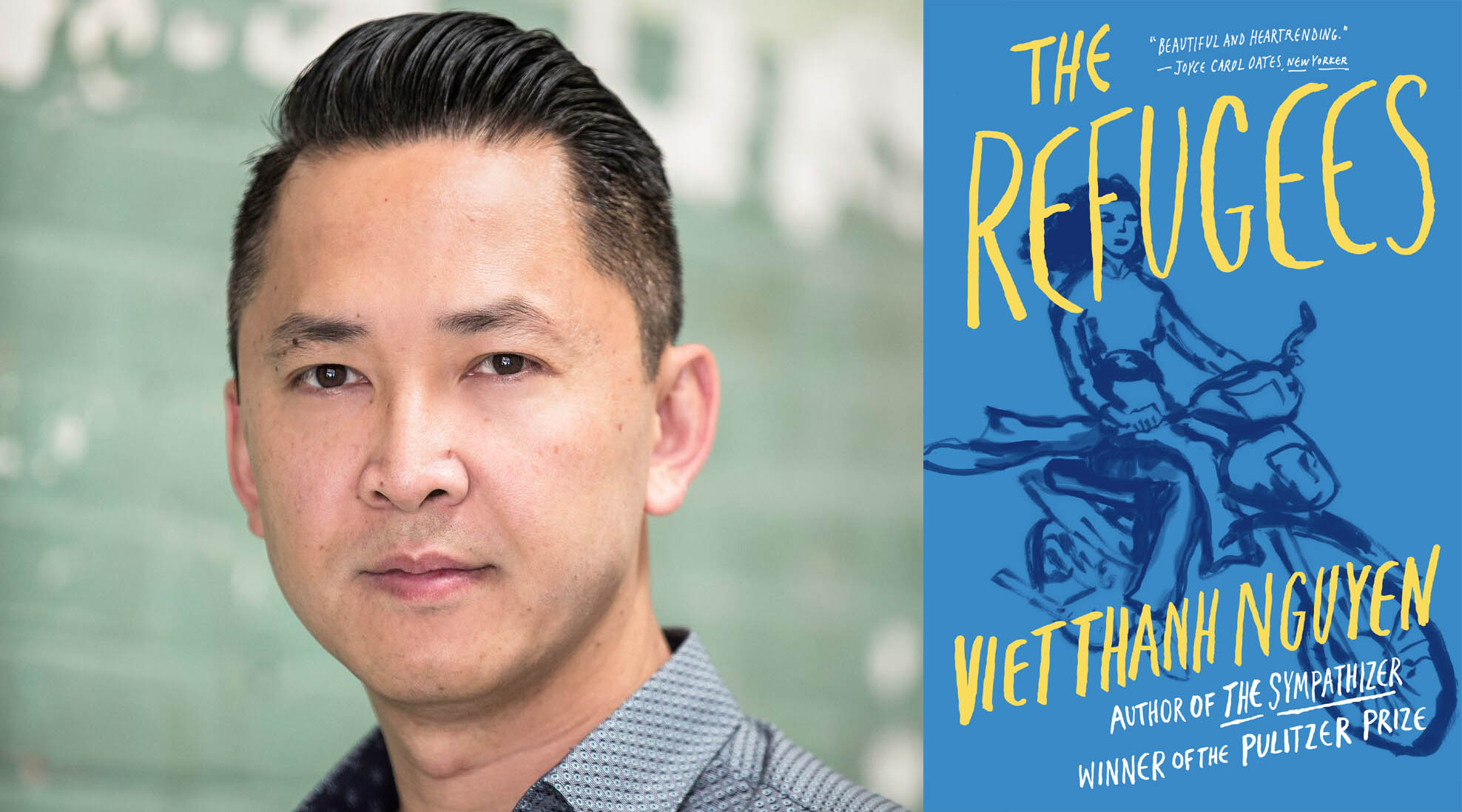
Photo by BeBe Jacobs
Aspen Words will confer the inaugural $35,000 Aspen Words Literary Prize this year, recognizing a work of fiction with social impact. Twenty nominees are still in the running, and the diverse list includes 12 novels and eight short story collections covering a variety of critical issues and published by an array of presses. While the jury works on narrowing this list down to five finalists and a winner, Aspen Words chatted with the nominees about their work, the importance of fiction in understanding contemporary issues, and the books that have influenced them most.
Viet Thanh Nguyen’s prize-nominated short story collection The Refugees gives voice to Vietnamese refugees whose lives are split between their adopted homeland of the United States and their country of birth. The stories cover complex parent-child relationships, grief, secrets, couple dynamics, and the tension that immigrants feel while creating a life in a new home. Nguyen is also the author of the Pulitzer Prize-winning novel The Sympathizer.
Why did you write The Refugees?
I grew up knowing that Americans knew almost nothing of Vietnamese people, whether as enemies or friends. When Americans said “Vietnam,” they usually meant “The Vietnam War,” which really means the war as experienced by Americans. Because of the power of American culture, American views on Vietnam and the Vietnamese — or the American erasure of them — influenced the entire world’s perception. It was urgent to write a book that talked about Vietnamese people and especially the refugees that came to the United States, which included my family. I hoped that I could challenge and change American views, and hence world views, through simply telling Vietnamese stories. And I also hoped that I could speak, first and foremost, to Vietnamese people, wherever they were.
What was the most challenging thing about writing this book?
Learning how to write fiction. I learned how to write it through struggling with this book. The first words were written in 1997. The last were written in 2014. Learning to write meant exploring all manner of artistic and technical issues, but it also meant enduring. Coping with neglect, obscurity, rejection, and self-doubt are all part of writing as well, and all of them, singly or together, are challenging.
How might fiction help us to explore contemporary issues?
Seeing the connections between people of different times and different backgrounds is one way to explore contemporary issues. That was why I titled my collection The Refugees, because I wanted to draw the connection between what happened to Vietnamese refugees and refugee experiences in general. Even in looking at the past, as I was, I could attempt to show that the traumatic experiences of refugees then are not so different, by implication, from refugees today. Nowadays Vietnamese refugees have mostly become accepted in their countries of settlement, and their fellow citizens have forgotten the fear that they once felt towards them (the majority of Americans did not want to accept Vietnamese refugees). But the humanity of Vietnamese refugees then is no different than the humanity of refugees today.
What was an early experience where you learned that language had power?
My parents opened the second Vietnamese grocery store in downtown San Jose, California, in the late 1970s. As a child, I saw a sign in a store window not far from my parents. It said “Another American driven out of business by the Vietnamese.” I wondered if the person who put that sign up knew that my parents worked 12- to 14-hour days, almost every day of the year. I wondered if that person knew that my parents had been shot in their store on Christmas Eve. I knew that the sign meant that we were not Americans in the eyes of this person, and perhaps many others. I knew that the sign told a story, and that we were the enemies, the aliens, and the others in that story. I have spent my life acquiring the tools to fight against that sign and that story, which is still being told today.


